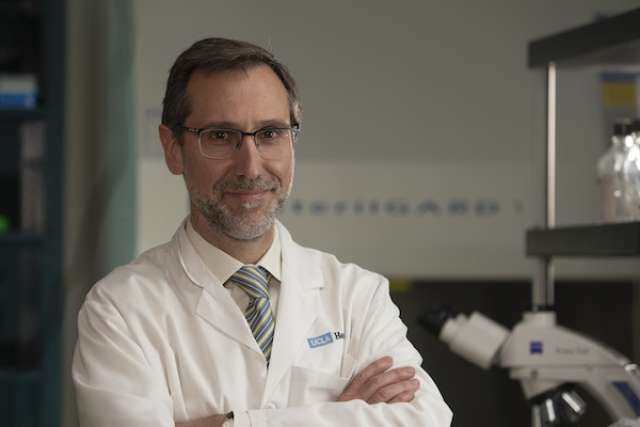UCLA’s Jonsson Comprehensive Cancer Center has received a $1 million gift to establish The V Foundation-Gil Nickel Fellowship in Melanoma Research. The fellowship will train a new generation of promising young scientists who will go on to conduct leading-edge melanoma research at UCLA and other top institutions nationwide.
The scientists will work on the cancer center’s most innovative, interdisciplinary melanoma research projects; in particular, projects that will translate laboratory breakthroughs into pre-clinical and clinical testing of novel treatments for patients, said Dr. Judith C. Gasson, director of the cancer center.
“The goal is to marry the promise of targeted therapies and immunotherapies to treat advanced melanoma without the harmful side effects of conventional treatments such as chemotherapy,” Gasson said.
The fellowship honors the late Gil Nickel, proprietor of Napa Valley’s Far Niente, Nickel & Nickel and Dolce wineries, who died in 2003 of melanoma.
“When Gil was diagnosed with melanoma, he did everything possible to battle it,” said his wife, Beth Nickel. “This gift will encourage brilliant young cancer scientists to conduct melanoma research with the same gusto that Gil brought to his life and to his valiant struggle with cancer. Our family is deeply honored to partner with The V Foundation to establish this fellowship at one of the nation’s premier cancer centers.”
Gil Nickel and his family, along with The V Foundation for Cancer Research, have been key supporters of cancer research at UCLA, Gasson said. An award, the Gil Nickel Humanitarian Award, is presented every year in his honor at the Jonsson Cancer Center Foundation’s signature fundraising event.
The interest on the endowment will help fund the yearly salary and research expenses for post-doctoral fellows to pursue melanoma research under the guidance of Dr. Antoni Ribas, an assistant professor of hematology/oncology and a top melanoma researcher at UCLA. Ribas plans to recruit the best available post-doctoral fellows who are considering making melanoma their research focus.
“Malignant melanoma is a cancer with very limited treatment options. This is bound to change, thanks to the wealth of knowledge developed on the molecular mechanisms that guide this cancer and our refined understanding of how the immune system can help fight it,” Ribas said. “With advances in basic laboratory research, there is a critical need for physician-scientists who are able to bridge the laboratory and the clinic, translating the science into new treatment approaches that benefit patients.”
Developing new treatments for melanoma is vital. Most patients undergo surgery, but few other treatments have proven effective against this aggressive cancer. Chemotherapy doesn’t help much, nor do hormonal or vaccine treatments. And while it doesn’t affect as many people as breast and prostate cancers do, the numbers of melanoma cases are increasing faster than any other type of cancer, and the population affected is expanding beyond the traditionally susceptible Caucasians.
The V Foundation-Gil Nickel Fellowship in Melanoma Research represents a “significant investment in human capital that will strengthen and accelerate the cancer center’s efforts to recruit the best and brightest minds to a most challenging area of cancer research,” said Nick Valvano, chief executive officer of The V Foundation.
“We believe this important alliance will greatly advance our shared aim of saving lives by finding new and more effective ways to treat cancer,” noted Valvano.
Fellows in the program will be able to pursue a variety of scientific approaches to studying melanoma due to the cancer center’s strengths in gene medicine, vaccine research targeted therapies, basic research and clinical trials delivery system.
Melanoma will strike more than 62,000 Americans this year alone, according to the American Cancer Society. About 8,000 will die from the disease.
Jonsson Cancer Center Receives $1 Million Gift to Establish Melanoma Fellowship

"His track record of quickly turning breakthroughs in the laboratory into new therapies is impeccable," Jonsson Cancer Center director Dr. Michael Teitell said of Ribas.
Related Content
Physician
Share:



